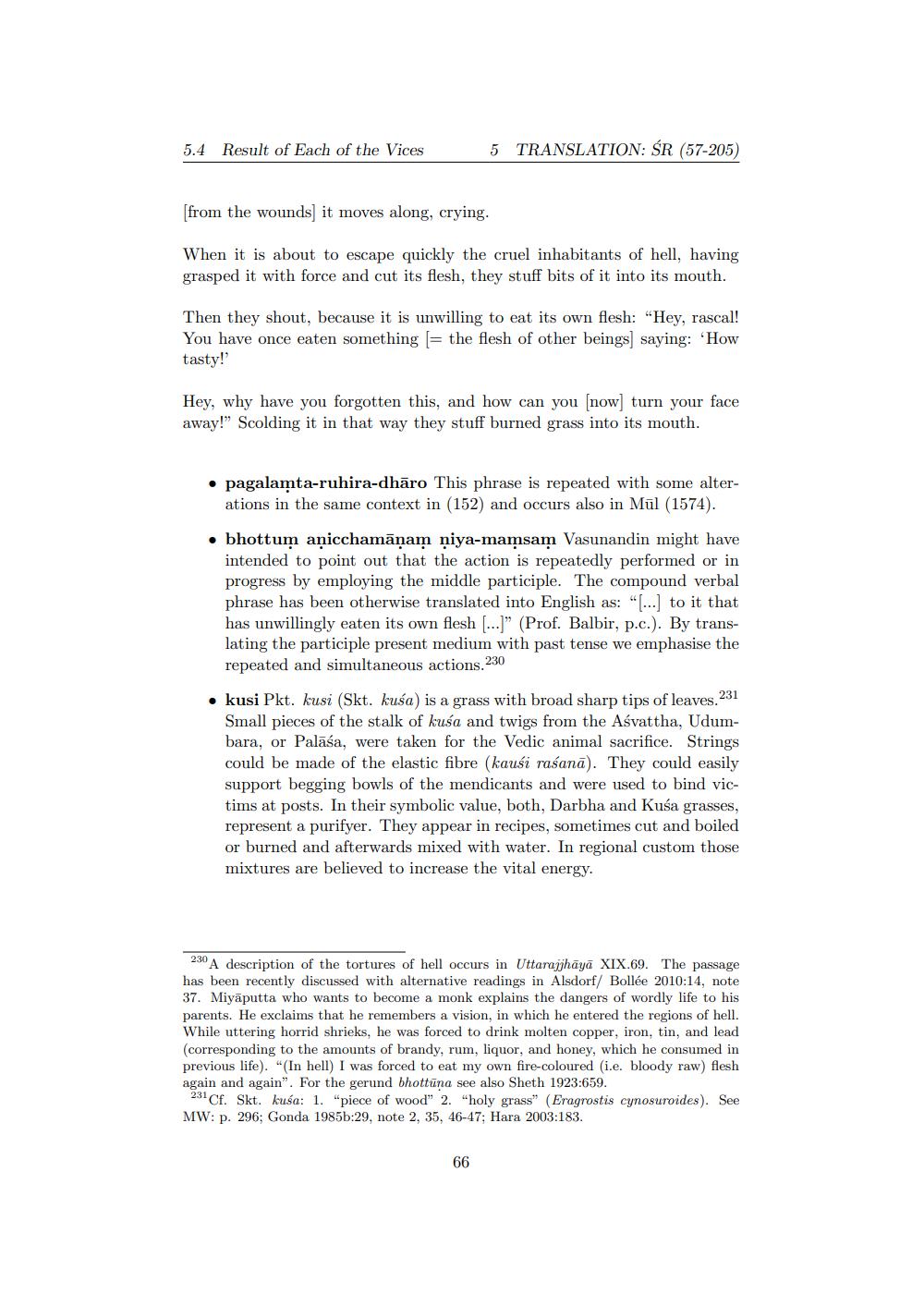________________
5.4 Result of Each of the Vices
5 TRANSLATION: ŚR (57-205)
[from the wounds] it moves along, crying.
When it is about to escape quickly the cruel inhabitants of hell, having grasped it with force and cut its flesh, they stuff bits of it into its mouth.
Then they shout, because it is unwilling to eat its own flesh: "Hey, rascal! You have once eaten something [= the flesh of other beings] saying: 'How tasty!"
Hey, why have you forgotten this, and how can you [now] turn your face away!" Scolding it in that way they stuff burned grass into its mouth.
⚫ pagalamta-ruhira-dharo This phrase is repeated with some alterations in the same context in (152) and occurs also in Mul (1574).
⚫ bhottum anicchamāṇam niya-mamsam Vasunandin might have intended to point out that the action is repeatedly performed or in progress by employing the middle participle. The compound verbal phrase has been otherwise translated into English as: "[...] to it that has unwillingly eaten its own flesh [...]" (Prof. Balbir, p.c.). By translating the participle present medium with past tense we emphasise the repeated and simultaneous actions.230
• kusi Pkt. kusi (Skt. kusa) is a grass with broad sharp tips of leaves. 231 Small pieces of the stalk of kusa and twigs from the Aśvattha, Udumbara, or Palāśa, were taken for the Vedic animal sacrifice. Strings could be made of the elastic fibre (kausi raśana). They could easily support begging bowls of the mendicants and were used to bind victims at posts. In their symbolic value, both, Darbha and Kusa grasses, represent a purifyer. They appear in recipes, sometimes cut and boiled or burned and afterwards mixed with water. In regional custom those mixtures are believed to increase the vital energy.
230 A description of the tortures of hell occurs in Uttarajjhāyā XIX.69. The passage has been recently discussed with alternative readings in Alsdorf/ Bollée 2010:14, note 37. Miyaputta who wants to become a monk explains the dangers of wordly life to his parents. He exclaims that he remembers a vision, in which he entered the regions of hell. While uttering horrid shrieks, he was forced to drink molten copper, iron, tin, and lead (corresponding to the amounts of brandy, rum, liquor, and honey, which he consumed in previous life). "(In hell) I was forced to eat my own fire-coloured (i.e. bloody raw) flesh again and again". For the gerund bhottuna see also Sheth 1923:659.
231 Cf. Skt. kusa: 1. "piece of wood" 2. "holy grass" (Eragrostis cynosuroides). See MW: p. 296; Gonda 1985b:29, note 2, 35, 46-47; Hara 2003:183.
66




